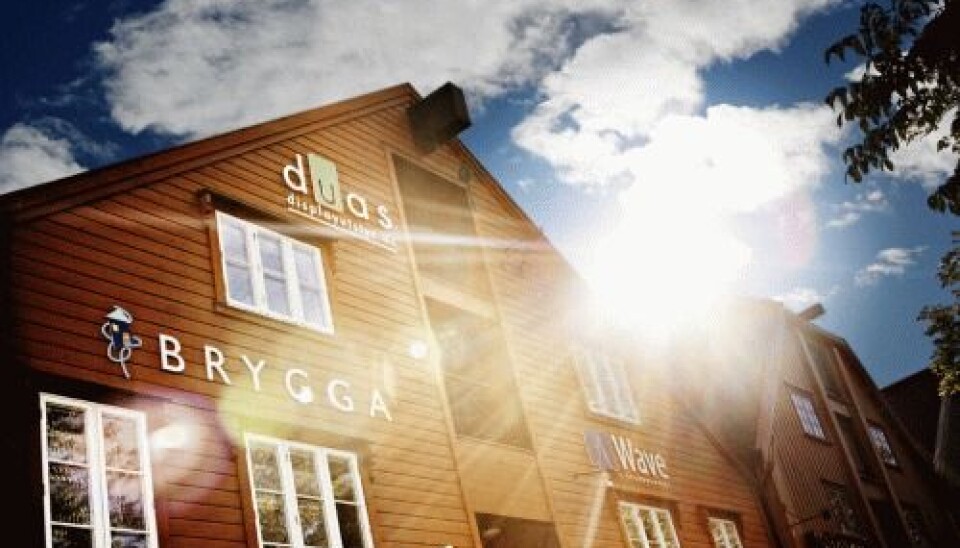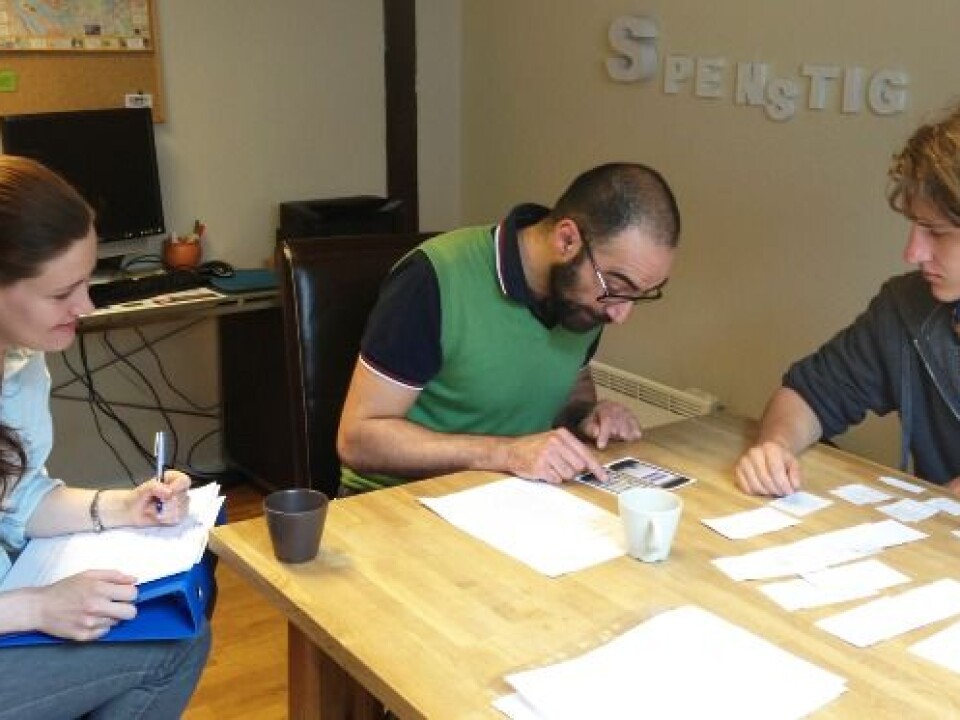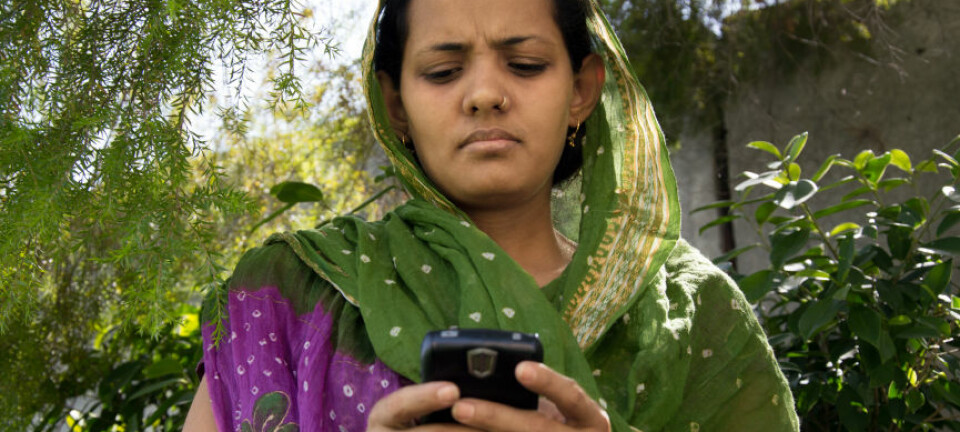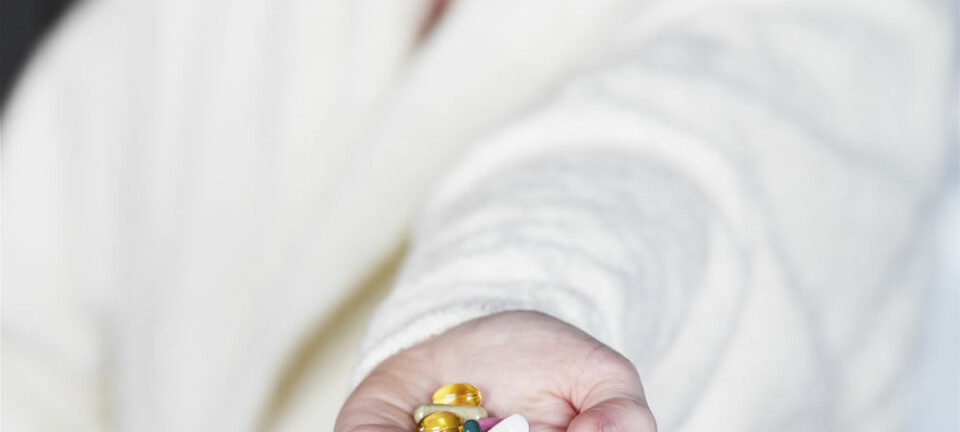An article from Norwegian SciTech News at SINTEF

An app to help ex-drug and alcohol abusers
Ex-drug and alcohol abusers who have completed their treatment need a simple support system and daily motivation. Now they are getting both – in a handy pocket format.
Denne artikkelen er over ti år gammel og kan inneholde utdatert informasjon.
How are my finances, and what must I do to get a place on a study course this autumn? Who can help me get housing benefit, and have I given the welfare service enough information? Now there is a new app which has the answers to all these questions and more.
In fact, the idea behind what will be both a support device and motivator came originally from abusers via Brygga, a co-operative organization funded jointly by Trondheim municipality and Resource Centre for Drug and Alcohol Issues in Central Norway.
Expertise in drug and alcohol abuse
SINTEF researchers have advanced the concept and developed an app prototype in close collaboration with participants from Brygga in Trondheim and patients in drug rehabilitation.
"We can safely say that both current and former drug and alcohol abusers have been key contributors to this project", says the researcher. The group at Brygga has provided content through interviews and workshops.
A complex maze of support services

The need for a simple, visual device to help people navigate their way through a complex maze of support services forms the basis for development of the system. The new app is thus designed to help its users find their way to easy and specific services which will make their lives easier – all using one device, before, during and after their treatment. It will also help them to keep updated on different topics, such as the job market. But it is also designed to provide motivation, and to prevent users from giving up.
"Our aim is to simplify everyday life for people who have to start from scratch and navigate their way around the various sources of assistance available", says Kristel Killie, director of Brygga.
"We can see that users often need help and support all at once in many aspects of their lives. They have completed a treatment programme to get rid of their drug or alcohol dependency, and now have to venture out into the community to start their lives all over again – find a job, a place to live, sort out their finances and establish new networks. This is a very challenging time", says Killie.
She says that many users who have led a life with drugs or alcohol have only a limited experience of everyday tasks which to the man in the street are seen as straightforward.
Killie explains that participants are in a very different place when it comes to finances, employment, education, physical and mental health, networks and so on. However, what they all have in common is a need for help and support, often from several different administrative bodies and often at the same time, coordinated among the various bodies.. This is often experienced by both patients and employees as an overwhelming task.
"Above all else, the app is a self-help device enabling them to manage and cope with their lives", says Killie. We achieve this by creating better understanding and a simpler picture of the services and amenities available in the community.
"This is clearly a product which meets the aims and responds to the challenges set out in the Norwegian government's Coordination Reform", she adds.
Motivation and assistance
SINTEF has been responsible for meeting the many system requirements. To ensure that the app content complies with users' real needs, several rounds of interviews were conducted with users at the Brygga centre. They also took part in many workshops with the researchers.
"We opted to use a qualitative interviewing approach combined with workshops in which the user participates in the design process", says researcher Hanne Linander at SINTEF.
"This was ideal because the app must be a practical tool addressing issues on which the users really need help. We have kept in contact with app users – and have received feedback on the things we have been working with", she explains.
The result is a prototype which, according to former drug and alcohol abusers themselves, is just the pocket helper they need.
"I lose interest if I find it too difficult to navigate on the internet", says "Tore", who is one of the former alcohol and drug abusers that have contributed with their ideas and experiences, and testing of the app.
A visual guide
He emphasizes that user-friendliness and motivation have been the most important factors during the development work. One aspect with which he is particularly satisfied is that the app functions as a guide with an in-built "traffic light" system, providing users with a visual status update on different topics.
"For example, if I have to find somewhere to live, the app will ask me whether I'm interested in the private rental market or municipal accommodation", says "Tore".
"The app will tell me if I don't qualify for municipal accommodation, and then guide me to a site providing information about the private rental market", he says.
"It will also help me to find my way through the process explaining whether I have the money to rent the flat I may be interested in, and whether I have an entitlement to housing benefit. And, not least, how I can apply for the benefit", he says.
"Once I've been through the entire process, the app will give me a green light in the field marked "accommodation". If one or two things are missing I get an amber signal, and if they're completely messed up I'll get a yellow light telling me that something has to be done. The same applies to other topics such as employment, education and social support", he says.
This was originally a regional project, but now the app may be launched nationally.
"I think this app can provide simple and effective help to anyone experiencing a life crisis", says "Tore". "And not just for those with drug and alcohol problems. There are also others trying to cope with challenging situations who need what we call "multiple assistance" from different service providers”, he says.
“Tore” is now free of drug and alcohol problems and is studying for a Bachelor's degree in Economics.
Commercialization – the next step
The researchers have now tested the app's content and user-friendliness for all the topics it covers. And the result is a thumbs-up from all those involved in the testing process.
"The next step is to find a business partner to commercialize the product", says SINTEF researcher Nina Vanvik. She thinks that a product of this type has great market potential, and that it will save both individuals and society as a whole a great deal of money.
The project is funded jointly by the Norwegian Directorate of Health and Innovation Norway via the InnoMed initiative.


































